Laxmikant Summary: National Commission to Review the Working of the Constitution- 2 | Indian Polity for UPSC CSE PDF Download
Recommendations
6. Executive and Administration
- In case of a hung Parliament, the Lok Sabha may elect the leader of the House. He/she may then be appointed as the prime minister by the President. The same procedure could be followed at the state level also.
- A motion of no-confidence against a prime minister must be accompanied by a proposal of an alternative leader to be voted simultaneously. This is called the 'system of constructive vote of no confidence'.
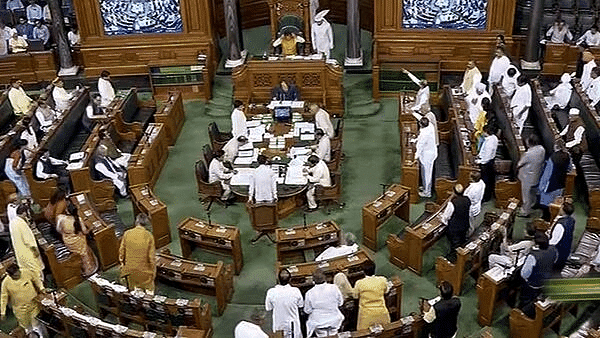
- For a motion of no-confidence to be brought out against the government, at least 20 per cent of the total number of members of the House should give notice.
- The practice of having an oversized Council of Ministers should be prohibited by law. A ceiling on the number of Ministers in any State or the Union government should be fixed at the maximum of 10 per cent of the total strength of the popular house of the legislature.
- The practice of creating a number of political offices with the position, perks, and privileges of a minister should be discouraged. Their number should be limited to 2 per cent of the total strength of the lower house.
- The Constitution should provide for the appointment of Lokpal, keeping the prime minister outside its purview and the institution of Lokayuktas in the states.
- Lateral entry into government jobs above joint secretary level should be allowed.
- Article 311 should be amended to ensure not only protection for honest public servants but penalization for dishonest ones.
- The questions of personnel policy, including placements, promotions, transfers, and fast-track advancements, should be managed by autonomous Civil Service Boards constituted under statutory provisions.
- Officials, before starting their career, in addition to taking an oath of loyalty to the Constitution, should swear to abide by the principles of good governance.
- Right to information should be guaranteed, and the traditional insistence on secrecy should be discarded. In fact, there should be an oath of transparency in place of an oath of secrecy.
- Public Interest Disclosure Acts (popularly called Whistleblower Acts) may be enacted to fight corruption and maladministration.
- A law should be enacted to provide for the forfeiture of benami property of corrupt public servants as well as non-public servants.
7. On Centre-State and Inter-State Relations
- The Inter-State Council Order of 1990 may clearly specify the matters that should form the parts of consultations.
- Management of disasters and emergencies (both natural and manmade) should be included in the List III (Concurrent List) of the Seventh Schedule.
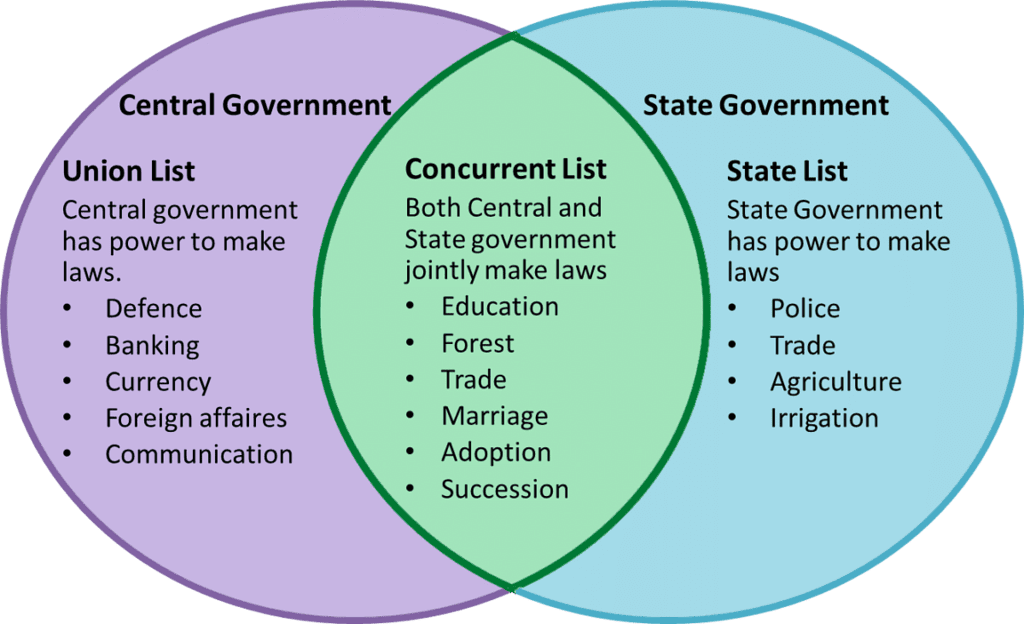
- A statutory body called the Inter-State Trade and Commerce Commission should be established.
- The President should appoint the governor of a state only after consultation with the chief minister of that state.
- Article 356 should not be deleted, but it must be used sparingly and only as a remedy of the last resort.
- The question of whether the ministry in a state has lost the confidence of the assembly or not should be tested only on the floor of the House. The Governor should not be allowed to dismiss the ministry, so long as it enjoys the confidence of the House.
- Even without the state being under a proclamation of emergency, President's Rule may be continued if elections cannot be held. Article 356 should be amended to this effect.
- The State Assembly should not be dissolved before the proclamation issued under Article 356 has been laid before Parliament. Article 356 should be amended to ensure this.
- River water disputes between States and/or the Centre should be heard and disposed of by a bench of not less than three judges and, if necessary, a bench of five judges of the Supreme Court for the final disposal of the suit.
- Parliament should replace the River Boards Act of 1956 with another comprehensive enactment after consultation with all the states.
- When the state bill is reserved for consideration of the President, there should be a time-limit (say three months) within which the President should take a decision whether to give his/her assent or to return the bill.
8. Judiciary
- A National Judicial Commission under the Constitution should be established to recommend the appointment of judges of the Supreme Court. It should comprise the Chief Justice of India (as chairman), two senior-most Judges of the Supreme Court, the Union Law Minister, and one person nominated by the President.
- A committee of the National Judicial Commission should examine complaints of deviant behavior of the Supreme Court and high court judges.
- The retirement age of the judges of high courts and Supreme Court should be increased to 65 and 68, respectively.
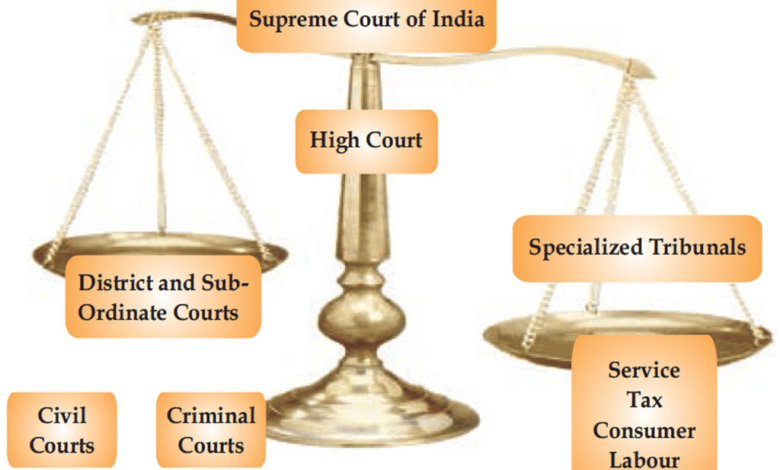
4. No court other than the Supreme Court and the High Courts should have the power to punish for contempt of itself.
5. Except for the Supreme Court and the High Courts, no other court should have the power to declare the Acts of Parliament and State Legislatures as being unconstitutional or beyond legislative competence and so ultra vires.
6. A National Judicial Council and Judicial Councils in States should be set up for the preparation of plans and annual budget proposals.
7. In the Supreme Court and the High Courts, judgments should ordinarily be delivered within 90 days from the conclusion of the case.
8. An award of exemplary costs should be given in appropriate cases of abuse of the process of law.
9. Each High Court should prepare a strategic plan for time-bound clearance of arrears in courts within its jurisdiction. No case should remain pending for more than one year.
10. The system of plea-bargaining should be introduced as part of the process of decriminalization.
11. The hierarchy of the subordinate courts in the country should be brought down to a two-tier subordinate judiciary under the High Court.
9. On Pace of Socio-Economic Change and Development
- A way could and should be found to bring a reasonable number of SCs, STs, and OBCs onto the benefits of the Supreme Court and high courts.
- Social policy should aim at enabling the SCs, STs, and OBCs, with particular attention to the girls, to compete on equal terms with the general category.
- Appropriate new institutions should be established to ensure that the resources earmarked for the weaker sections are optimally used.
- The Citizens' Charters should be prepared by every service-providing department or agency to enumerate the entitlements of the citizens, specifically those of the SCs, STs, and other deprived classes.
- Reservation for SCs, STs, and OBCs should be brought under a statute covering all aspects of reservation, including setting up of Arakshan Nyaya Adalats to adjudicate upon all disputes pertaining to reservation.
- Residential schools for SCs, STs, and OBCs should be established in every district in the country.
- All tribal areas governed by the Fifth Schedule of the Constitution should be transferred to the Sixth Schedule. Other tribal areas should also be brought under the Sixth Schedule.
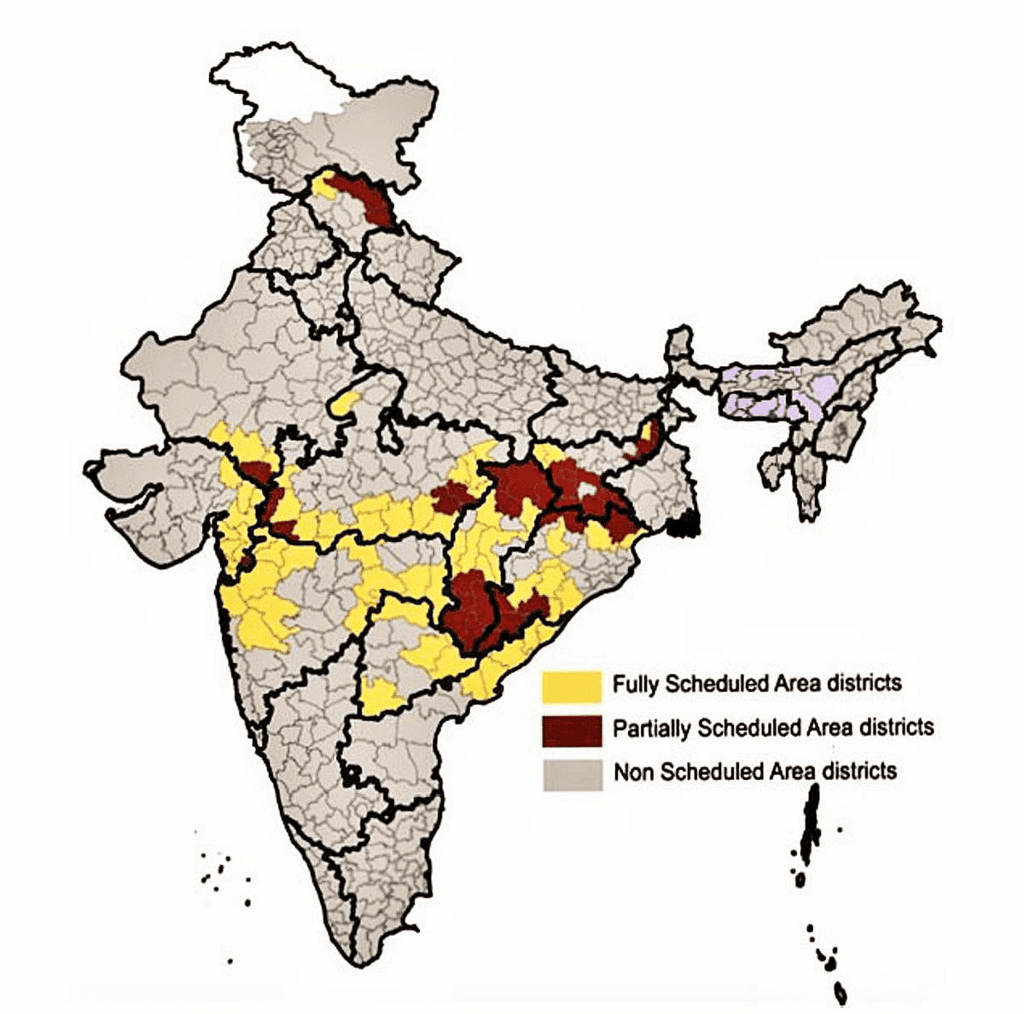
- Special courts exclusively to try offenses under the SCs and STs (Prevention of Atrocities) Act, 1989, should be established.
- Prevention of untouchability requires, inter alia, effective punitive action under the Protection of Civil Rights Act, 1955.
- The Employment of Manual Scavengers and Construction of Dry Latrines (Prohibition) Act, 1993, should be strictly enforced.
- Steps should be taken for the improvement of educational standards as well as for increasing the political representation of minority communities.
- A fully empowered National Authority for the Liberation and Rehabilitation of bonded labor should be set up. Similar authorities should also be established at the state level.
- As regards women, actions covering reservations, development, empowerment, health, and protection against violence should be taken.
10. Decentralisation (Panchayats and Municipalities)
- The Eleventh and Twelfth Schedules of the Constitution should be restructured to create a separate fiscal domain for panchayats and municipalities.
- State panchayat council should be established under the chairmanship of the chief minister.
- Panchayats and Municipalities should be categorically declared to be 'institutions of self-government,' and exclusive functions be assigned to them. For this purpose, Articles 243-G and 243-W should be suitably amended.
- The Election Commission of India should have the power to issue directions to the State Election Commission for the discharge of its functions. The State Election Commission should submit its annual or special reports to the Election Commission of India and to the Governor. This requires the amendment of Articles 243-K and 243-ZA.
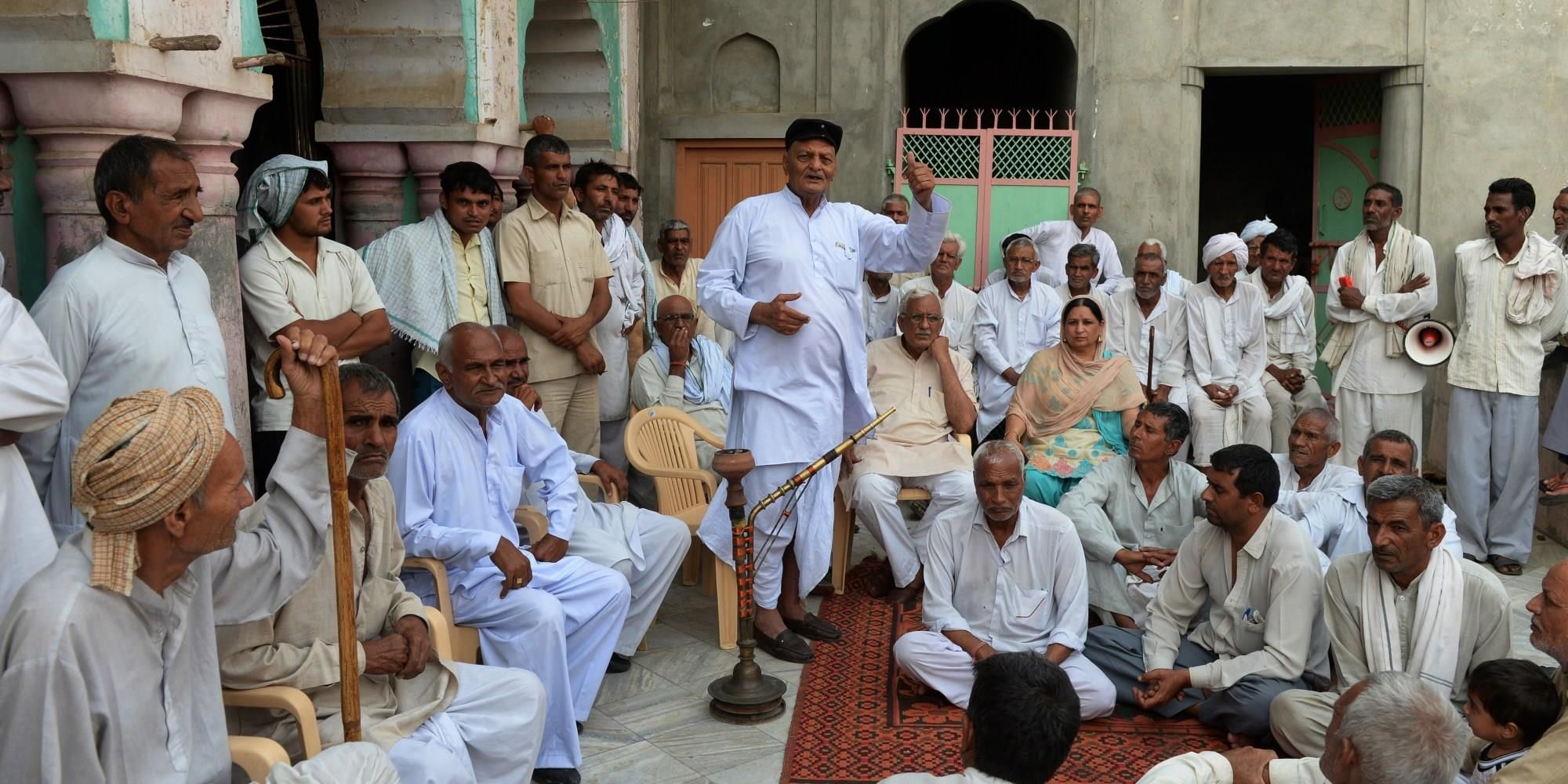
- Article 243-E should be amended to the effect that a reasonable opportunity of being heard shall be given to a Panchayat before it is dissolved.
- To ensure uniformity in the practice relating to the audit of accounts, the CAG of India should be empowered to conduct the audit or lay down accounting standards for Panchayats.
- Whenever a Municipality is superseded, a report stating the grounds for such dissolution should be placed before the State Legislature.
- All provisions regarding qualifications and disqualifications for elections to local authorities should be consolidated in a single law.
- The functions of delimitation, reservation, and rotation of seats should be vested in a Delimitation Commission and not in the State Election Commission.
- The concept of a distinct and separate tax domain for municipalities should be recognized.
11. Institutions in North East India
- Efforts are to be made to give all the States in this region the opportunities provided under the 73rd and 74th Constitutional Amendments. However, this should be done with due regard to the unique political traditions of the region.
- The subjects given under the Sixth Schedule and those mentioned in the Eleventh Schedule could be entrusted to the Autonomous District Councils (ADCs).
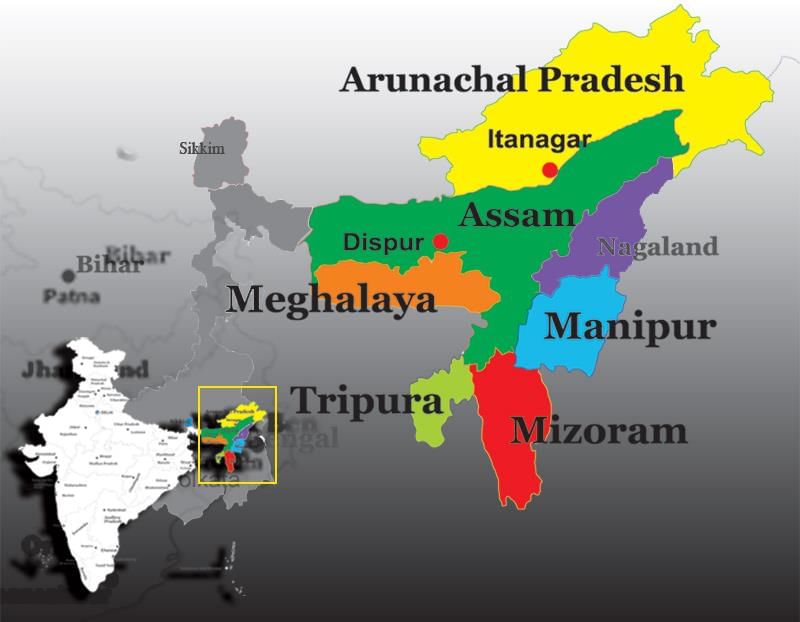
- 'Traditional forms of governance should be associated with self-governance because of the present dissatisfaction.
- A National Immigration Council should be set up to examine a range of issues including a review of the Citizenship Act, the Illegal Migrants Determination by Tribunal Act, the Foreigners Act, and so on.
12. On Electoral Processes
- Any person charged with any offence punishable with imprisonment for a maximum term of five years or more should be disqualified from being chosen as or for being a member of Parliament or Legislature of a State.
- Any person convicted for any heinous crime like murder, rape, smuggling, dacoity, etc., should be permanently debarred from contesting for any political office.
- Criminal cases against politicians pending before Courts either for trial or in appeal must be disposed of speedily, if necessary, by appointing Special Courts.
- The election petitions should also be decided by special courts. In the alternative, special election benches may be constituted in the High Courts and earmarked exclusively for the disposal of election petitions and election disputes.
- Any system of State funding of elections bears a close nexus to the regulation of working of political parties by law and to the creation of a foolproof mechanism under law with a view to implementing the financial limits strictly. Therefore, proposals for State funding should be deferred till these regulatory mechanisms are firmly in position.
- Candidates should not be allowed to contest election simultaneously for the same office from more than one constituency.
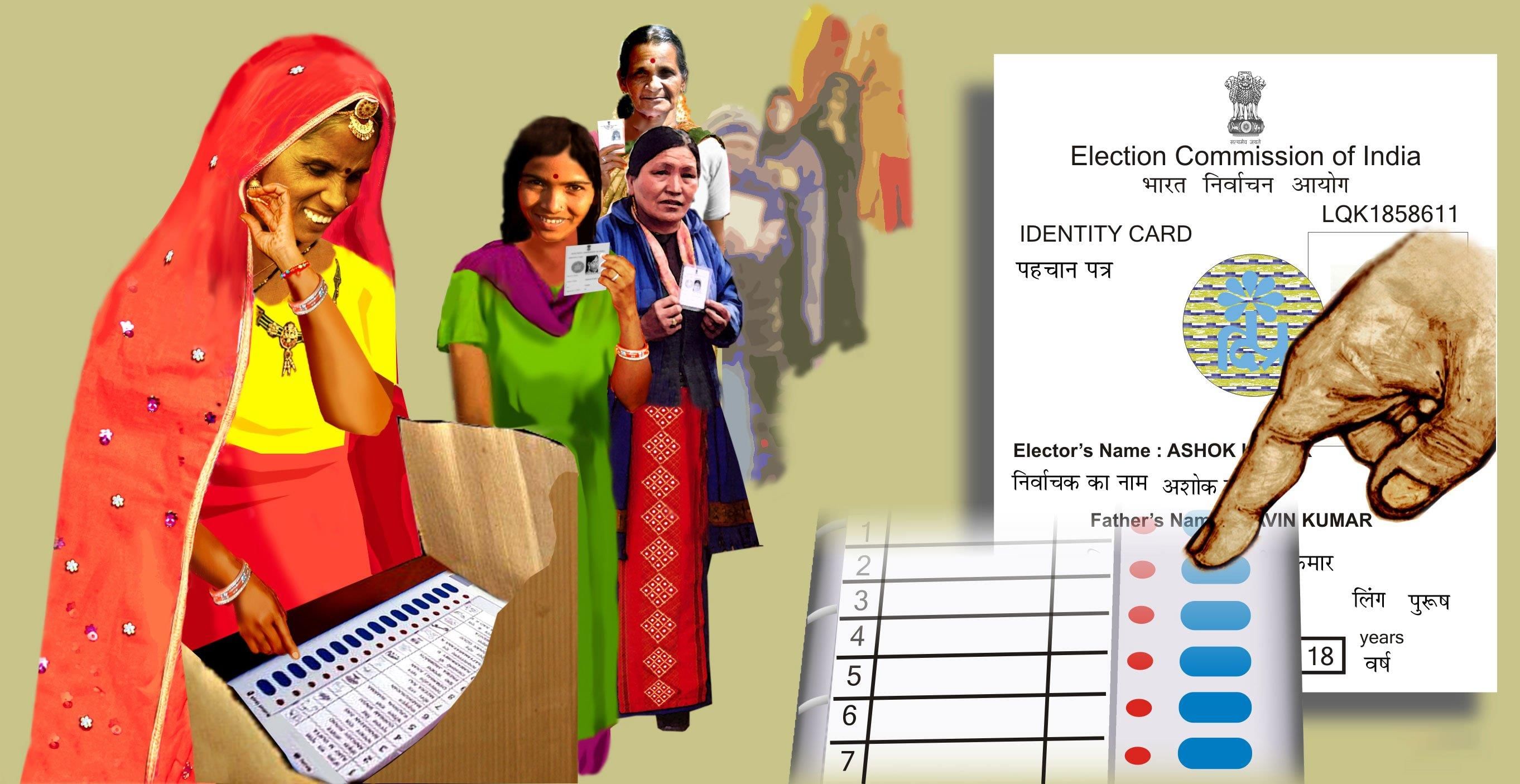
- The election code of conduct should be given the sanctity of law and its violation should attract penal action.
- The Commission, while recognizing the beneficial potential of the system of runoff contest electing the representative winning on the basis of 50 per cent plus one vote polled, as against the present first-past-the-post system, for a more representative democracy, recommends that the Government and the Election Commission of India should examine this issue of prescribing a minimum of 50 per cent plus one vote for election in all its aspects.
- An independent candidate who loses election three times consecutively should be permanently debarred from contesting election to the same office.
- The minimum number of valid votes polled should be increased to 25 per cent from the current 16.67 per cent as a condition for the deposit not being forfeited.
- The issue of eligibility of non-Indian born citizens or those whose parents or grandparents were citizens of India to hold high offices in the realm such as President, Vice-President, Prime Minister, and Chief Justice of India should be examined in depth through a political process after a national dialogue.
- The Chief Election Commissioner and the other Election Commissioners should be appointed on the recommendation of a body consisting of the Prime Minister, Leader of the Opposition in the Lok Sabha, Leader of the Opposition in the Rajya Sabha, the Speaker of the Lok Sabha, and the Deputy Chairman of the Rajya Sabha. A similar procedure should be adopted in the case of the appointment of State Election Commissioners.
13. On Political Parties
- A comprehensive law regulating the registration and functioning of political parties or alliances of parties should be made. The proposed law should:
- (a) Provide that a political party or alliance should keep its doors open to all citizens irrespective of any distinctions of caste, community, or the like.
- (b) Make it compulsory for the parties to maintain accounts of the receipt of funds and expenditure in a systematic and regular way.
- (c) Make it compulsory for the political parties requiring their candidates to declare their assets and liabilities at the time of filing their nomination.
- (d) Provide that no political party should provide a ticket to a candidate if he/she was convicted by any court for any criminal offence or if the courts have framed criminal charges against him/her.
- (e) Specifically provide that if any party violates the above provision, the candidate involved should be liable to be disqualified and the party deregistered and derecognized.
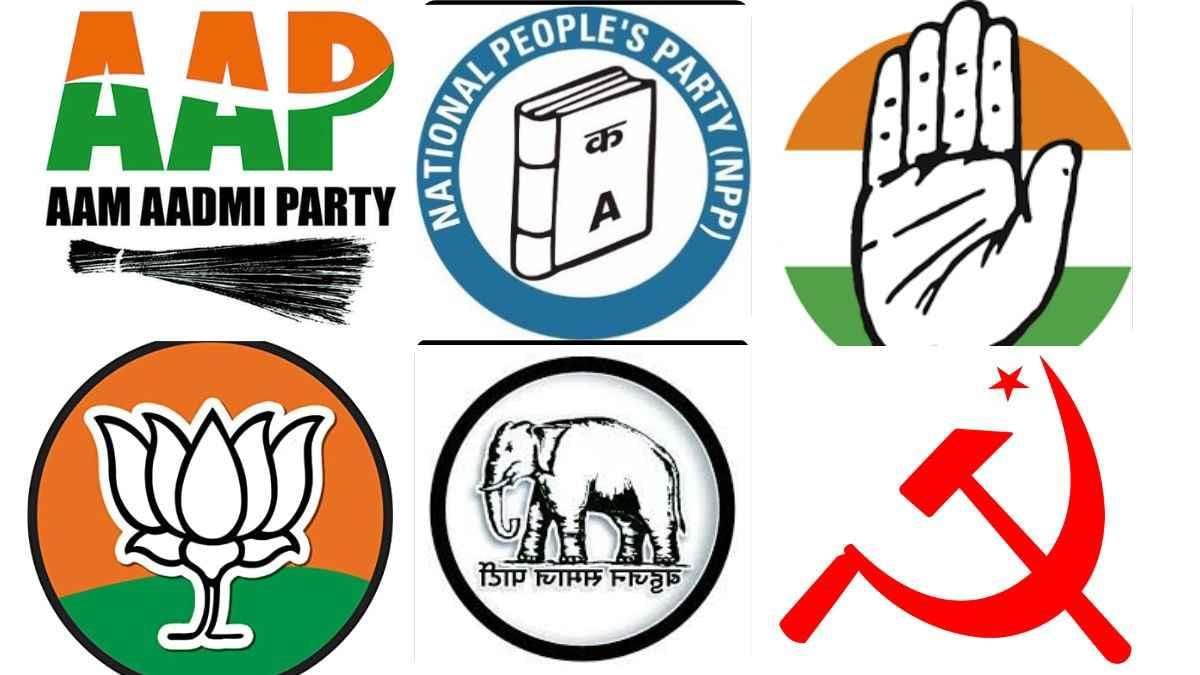
- The Election Commission should progressively increase the threshold criterion for eligibility for recognition so that the proliferation of smaller political parties is discouraged.
- A comprehensive legislation providing for the regulation of contributions to the political parties and towards election expenses should be enacted by consolidating such laws. This new law should:
- (a) Aim at bringing transparency into political funding;
- (b) Permit corporate donations within higher prescribed limits;
- (c) Make donations up to a specified limit tax exempt;
- (d) Make both donors and donees of political funds accountable;
- (e) Provide that audited political party accounts should be published yearly; and
- (f) Provide for de-recognition of the party and enforcement of penalties for filing false election returns.
14. On Anti-Defection Law
The provisions of the Tenth Schedule of the Constitution should be amended to provide the following:
- All persons defecting (whether individually or in groups) from the party or the alliance of parties, on whose ticket they had been elected, must resign from their parliamentary or assembly seats and must contest fresh elections.
- The defectors should be debarred from holding any public office of a minister or any other remunerative political post for at least the duration of the remaining term of the existing legislature or until the next elections, whichever is earlier.
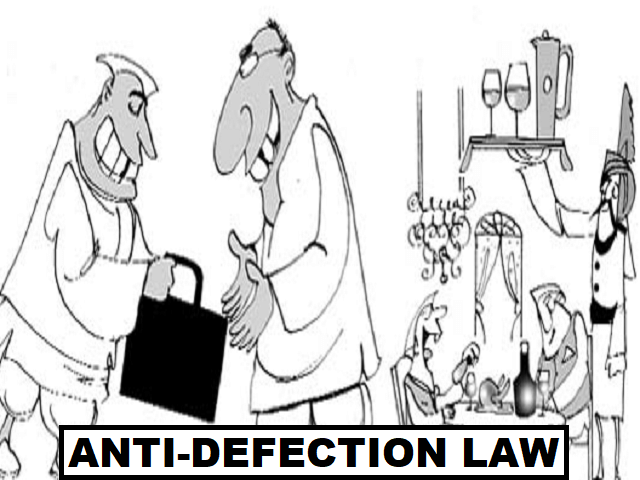
- The vote cast by a defector to topple a government should be treated as invalid.
- The power to decide questions regarding disqualification on the ground of defection should vest in the Election Commission instead of in the Speaker/Chairman of the House concerned.
|
154 videos|998 docs|260 tests
|
FAQs on Laxmikant Summary: National Commission to Review the Working of the Constitution- 2 - Indian Polity for UPSC CSE
| 1. What is the National Commission to Review the Working of the Constitution? |  |
| 2. What is the purpose of the National Commission to Review the Working of the Constitution? |  |
| 3. How does the National Commission to Review the Working of the Constitution function? |  |
| 4. What is the significance of the National Commission to Review the Working of the Constitution? |  |
| 5. How are the recommendations of the National Commission to Review the Working of the Constitution implemented? |  |
















